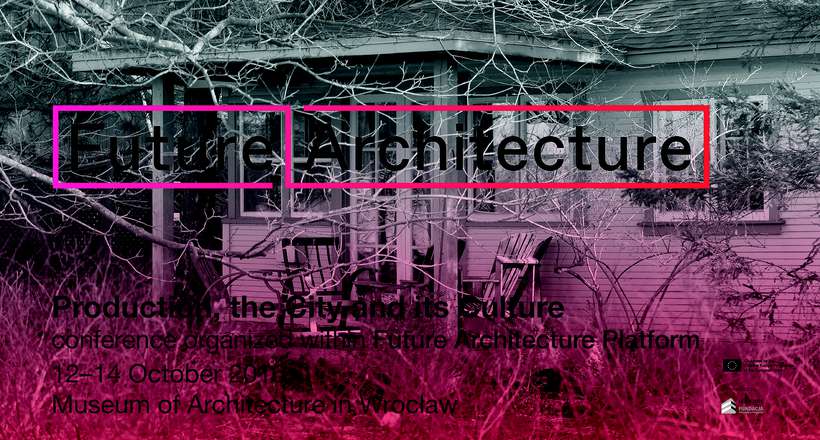Presentation at a Conference of the Museum of Architecture in Wroclaw.
‘Production, the City and its Culture’ was a conference organized by the Museum of Architecture in Wroclaw on the occasion of Wroclaw as a European Capital of Culture in 2016. The event was curated by Tomaz Pipan and involved several participants to The Future Architecture Platform program of 2016 including Ana Jeinić, Miloš Kosec, Manuela Schirra, Tomaž Pipan, and Amateur Cities (Ania Molenda, Cristina Ampatzidou).
Can we imagine a situation in which production and industry once again become the driving force of cultural change?
Striving to continuously improve the social status of citizens has become a driving force of cities. Due to the preference for knowledge and services over the value of production, the development of the service sector became an essential tool to achieve this vision. But what about artists, artisans, and producers? Who will produce all the shirts, phones, cars, lightbulbs, baskets, rompers, books and pens …? The culture of production gave way to a culture based on ideals and ideas, separated from the material world of things and objects.
The main aim of the conference is a call for rethinking the issues of production and manufacturing as part of the innovation process. We also want to think about what will be the impact of the renaissance of manufacturing, production, and industry on the shape of our cities – is it even possible?
Amateur Cities presented a lecture titled ‘Making and the Right to the City’. This talk looked at tensions emerging in cities from the changing position of industry on the one hand, and the growing interest in the maker movement on the other. While the maker movement has been presented as the next industrial revolution, turning it into a form of hype, the surrounding debate is also marked by an ideological shift in the understanding of production and ownership. While in many ways the bright future painted by this new revolution is hard to believe, the maker culture offers an interesting perspective on the way the culture of the city can be defined. In this lecture, we unpack how these aspects can help us form alternative ways of shaping cities today and in the future. We look at the maker culture both as hype and as an ideological shift connected to values of ownership and engagement. How those values impact the culture and politics of the city is the key question.
